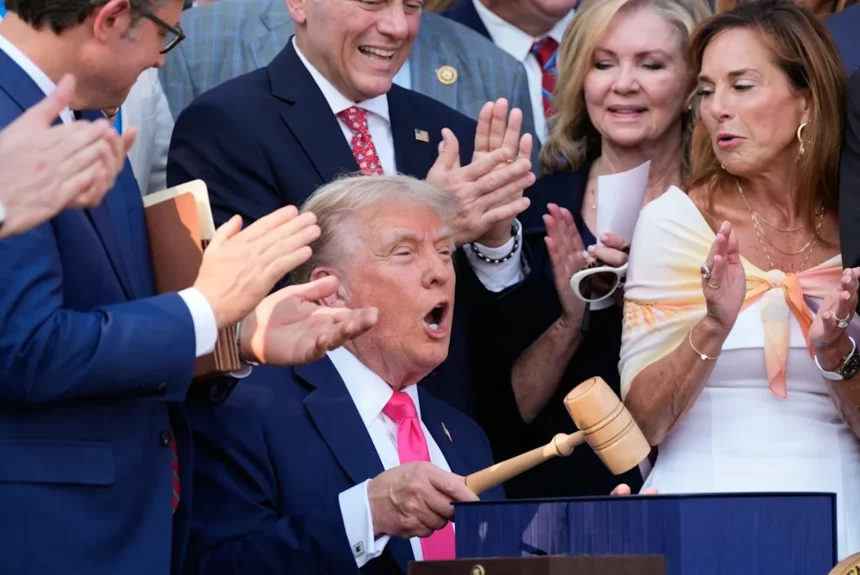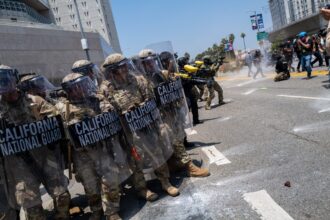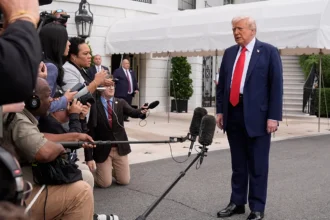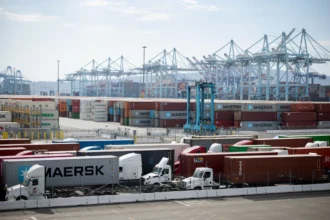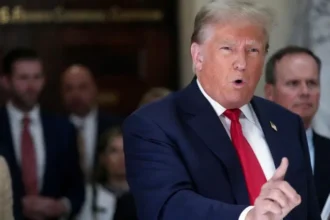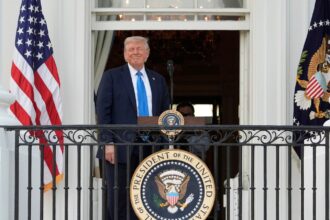The Congressional Budget Office (CBO) has issued a stark warning that President Donald Trump’s latest immigration crackdown could accelerate the decline of the U.S. population, threatening both long-term economic growth and the Federal Reserve’s battle against inflation.
According to the nonpartisan office, the combination of tighter border controls, reduced legal immigration, and stepped-up deportations is expected to slow labor force growth more than previously forecast. That, economists argue, risks undermining the very pillars of the U.S. economy.
Population and Labor Force Concerns
The CBO’s updated projections suggest that the U.S. population could shrink faster than anticipated under Trump’s new immigration policies, leading to a measurable drag on the economy.
- Labor shortages: Sectors like agriculture, construction, hospitality, and healthcare rely heavily on immigrant workers. Stricter enforcement could leave employers scrambling to fill critical roles.
- Slower growth: With fewer working-age people entering the labor force, GDP growth potential is expected to decline over the next decade.
- Demographic pressures: A shrinking workforce paired with an aging population will strain Social Security and Medicare, accelerating fiscal imbalances.
As one CBO official summarized, “The U.S. economy’s long-term strength is tied to population and labor force growth. Reducing immigration directly cuts into both.”
Inflationary Pressures
Ironically, Trump’s immigration crackdown could also amplify inflationary risks. With fewer workers available, businesses may be forced to raise wages sharply to attract talent, which in turn drives up prices for goods and services.
This dynamic runs counter to the administration’s promise to fight inflation, as bottlenecks in labor supply make it harder for the Federal Reserve to bring price growth down to its 2% target.
A Political and Economic Flashpoint
Immigration has long been one of Trump’s signature issues, and the administration argues that stricter enforcement is necessary to protect U.S. workers and reduce strain on public services. White House officials insist that fewer immigrants will mean higher wages and better opportunities for American citizens.
However, economists across the spectrum caution that the policy could backfire economically. Many U.S.-born workers are unwilling to take on the types of jobs that immigrants often fill, leaving critical industries vulnerable. Without steady population growth, the U.S. risks losing its edge as the world’s largest economy.
Implications for Policy
The CBO’s findings are expected to fuel debate in Congress over the economic consequences of Trump’s immigration approach. Key implications include:
- Fiscal policy: Shrinking GDP growth could reduce tax revenues, worsening the federal deficit.
- Monetary policy: The Fed may face a harder path in balancing growth and inflation.
- Global competitiveness: A smaller, slower-growing labor force could reduce America’s ability to compete with rising powers like China and India.
Conclusion
The CBO’s warning highlights a paradox at the heart of Trump’s immigration policy: while pitched as a way to strengthen the U.S. labor market, the crackdown may instead weaken economic fundamentals, driving labor shortages, slowing GDP growth, and stoking inflation.
As the debate unfolds, one thing is clear—immigration is no longer just a political flashpoint. It is now one of the defining economic challenges shaping America’s future.

